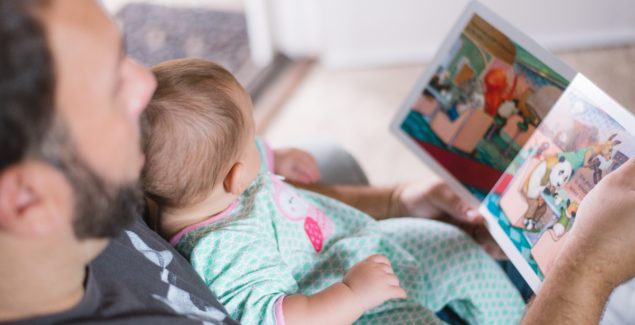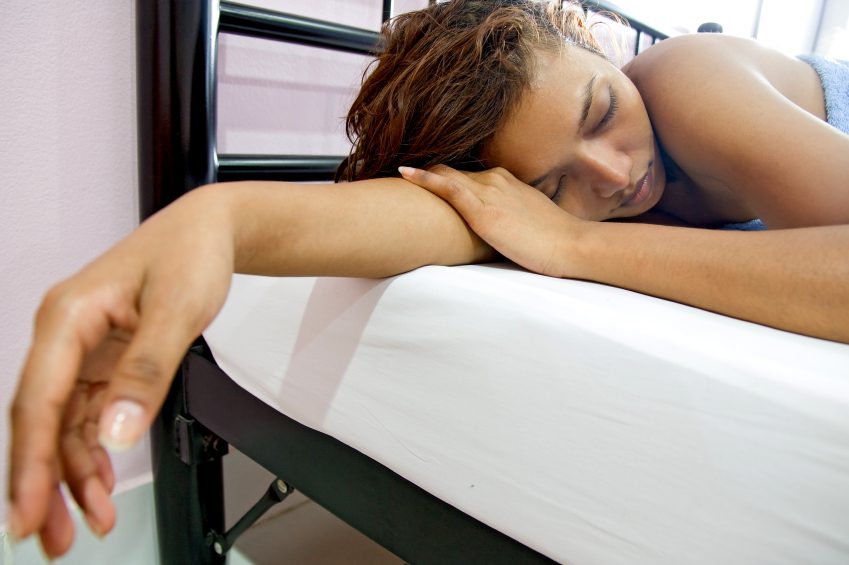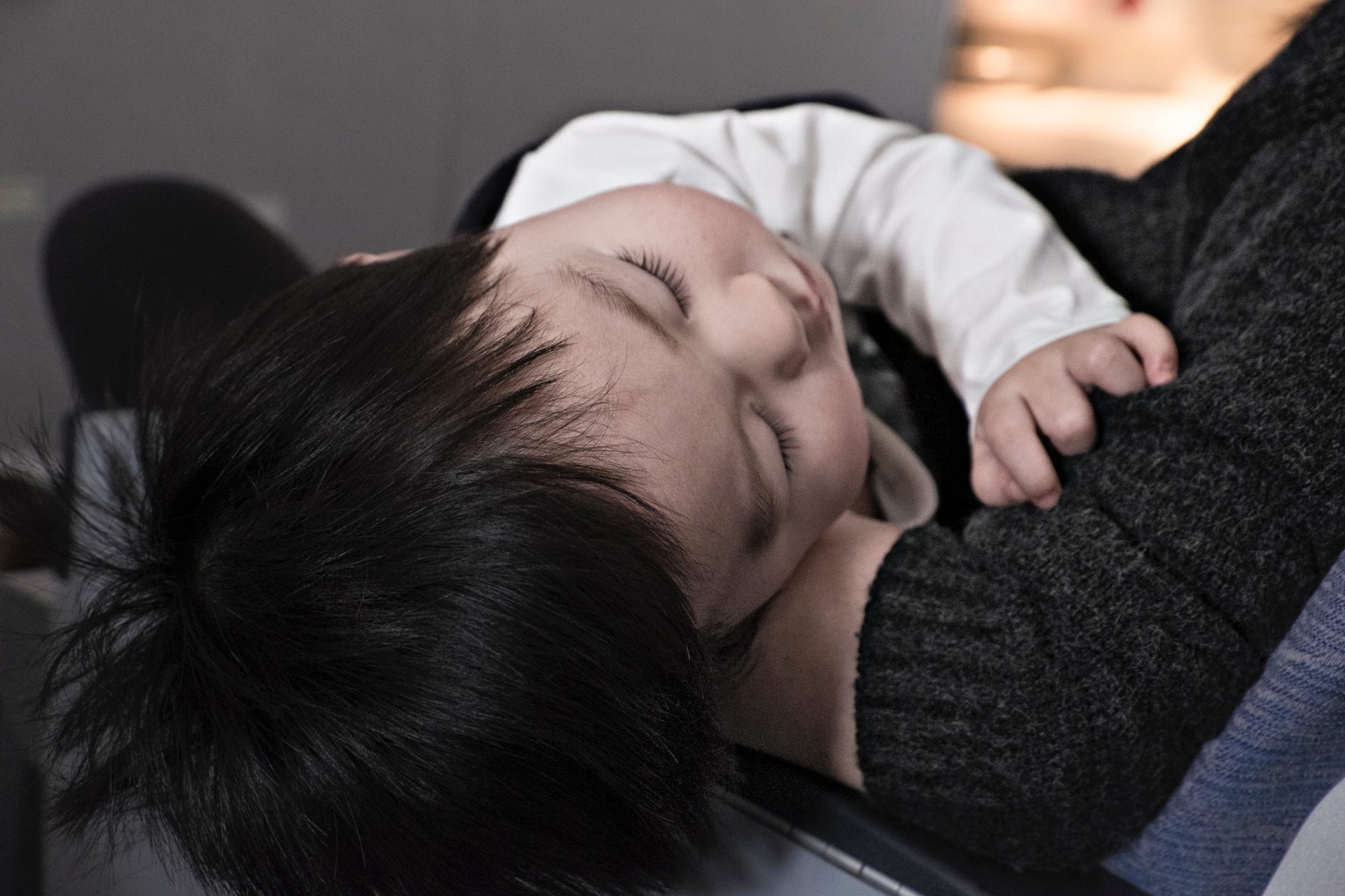The Importance of Sleep for Kids’ Emotional Well-being

Posted in: Parenting Concerns, You & Your Family
Topics: Healthy Living
Este artículo está disponible en español.
Listen to our podcast episode on everything you’ve wanted to know about sleep! Search for ‘Shrinking It Down’ wherever you get your podcasts.
I have a confession to make. I rarely get enough sleep.
I know it’s important for me, but too often life gets in the way. I’m not alone. Most adults don’t get enough sleep, and this can be particularly true for parents who are juggling multiple tasks and role expectations.
Unfortunately, too little sleep isn’t just a problem for adults. It’s also an increasing problem for our kids. While every child is different, the American Academy of Pediatrics (AAP) recommends 9 to 12 hours of sleep per night for younger kids and 8 to 10 hours for teens. But, according to the most recent data from the Centers for Disease Control, only 1 in 4 high school students report getting at least 8 hours each night. Try to answer yourself honestly, do the young people in your life meet these guidelines, consistently?
We tend to take sleep for granted these days. We tell ourselves we’ll make up for it over the weekend. We tell ourselves we’ll have an extra-large cup of coffee. When it comes to our kids, we tell ourselves we’ll try harder tomorrow to make sure they get to bed on time. We’ll get into a routine when the school year ends, or after it starts, or… Well, the list can be endless because there is always something to get in the way of good sleep and plenty of seemingly good excuses as to why.
What are some of those things? As I say above, we take sleep for granted because we don’t understand how important it is. We also have more demands on our time. Some of these demands are stressful but some aren’t. Some of us deprive ourselves of sleep so that we can get to the gym early or make sure our hockey-playing child gets extra time on the ice by getting there at 6 a.m. Some other important research that helps us understand includes the following:
- One in four kids has at least one caffeinated beverage a day (think beyond just coffee to sodas and chocolate). These kids have been shown to sleep less on average than kids who don’t have caffeine.
- Half of all kids have TVs in their rooms, leading to less sleep (for all the obvious reasons).
- We set kids up with bad habits from birth, by sleeping with them until they fall asleep, not being firm with them about bedtimes, and not sticking to routines.
- In addition to TV in the rooms, adolescents (and even children) are looking at their phones and texting late into the night. Studies have shown that people who texted in the hour before going to bed were less likely to report getting a good night’s sleep.
Watch more on the importance of sleep in this short video:
We may take sleep for granted because we don’t appreciate how important it actually is:
- Our brains need sleep. Brains process and consolidate our memories while we sleep. It helps our kids remember the important things in life. Sleep helps remove toxins from our brain that build up while we are awake. Without sleep, we can’t form new pathways in the brain that help us learn new things.
- Our bodies need sleep. This is especially true for babies and younger children. Sleep is necessary for muscle growth and repair. Some growth hormones are secreted and synthesized during sleep. Poor sleep is associated with obesity, high blood pressure, and diabetes. It also helps our immune system and we are more prone to colds when we are sleep deprived.
- Sleep isn’t just about quantity. Quality is important, too. Poor sleep quality is associated with poorer school performance as measured by teacher ratings, grades, and neurocognitive functioning. It can make kids and adults be more moody, angry, and anxious.
- Your kids probably need more sleep than they are getting. Most kids need 10 to 11 hours per night but get far less than that (closer to 9 ½ hours on average). There are wide individual differences in terms of a child’s sleep needs, but the AAP recommends the following guidelines:
- Under 1 year: 12 to 16 hours a day
- 1 to 2 years: 11 to 14 hours a day
- 3 to 5 years: 10 to 13 hours a day
- 6 to 12 years: 9 to 12 hours a day
- 13 to 18 years: 8 to 10 hours a day
- There are significant benefits when we get enough sleep. Good quality sleep is associated with greater ability to focus. Kids are better able to solve problems, are more creative, and do better socially when they are well-rested.
If you’re reading this and feeling discouraged, you shouldn’t. There are lots of things you can do to improve the quantity and quality of your children’s (and your own!) sleep.
Studies have found the following strategies to be most effective:
- Know how much sleep they should be getting. Take a look at the guidelines above. Set a goal to hit a goal somewhere within those parameters. There is a range for each age group, because kids do differ in their need for sleep. Figure out where in that range your child should fall.
- Limit screen time before bed. Also, get the TV out of the room. Kids should not be exposed to the glow from electric screens for at least an hour before going to sleep. Some researchers would say that two hours before bed is an even better idea. (This applies to parents too!)
- Stick with the same bedtimes and awake times. Yes, these can change a bit on the weekends or over the holidays, but they shouldn’t change very much.
- Have a bedtime routine that includes non-stimulating activities. These might include activities like a bath, stories, prayers or daily reflections, and snuggling.
- Provide a good environment for sleeping. Dark, quiet, and cool are the three magic words when it comes to good sleep. Some kids like a nightlight and that’s ok. Just be sure you get one that is as dim as possible. Same goes for noise. Some kids don’t like the quiet. In that case, a noise machine can be a good idea.
Finally, be on the lookout for signs a real sleep disorder. That can include symptoms such as:
- Refusing to go to bed
- Difficulty falling asleep
- Difficulty staying asleep
- Sleepwalking
- Nightmares
- Sleepiness during the day
If you’ve tried the recommendations listed above and your child is still having difficulty sleeping, talk to your child’s pediatrician. Don’t feel discouraged. There are specialists that can help your child get a better night’s sleep.

 Share
Share Tweet
Tweet





